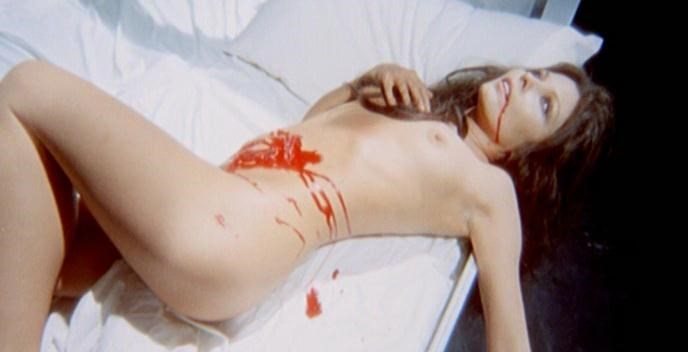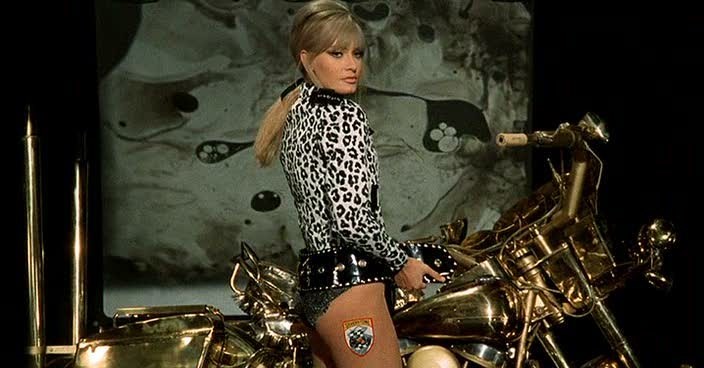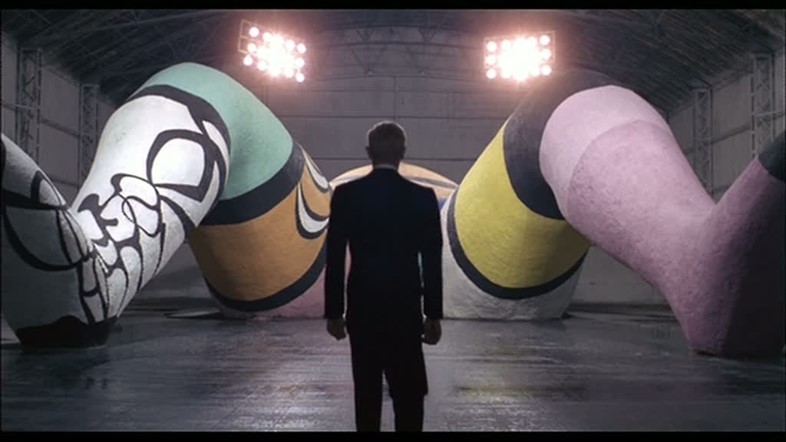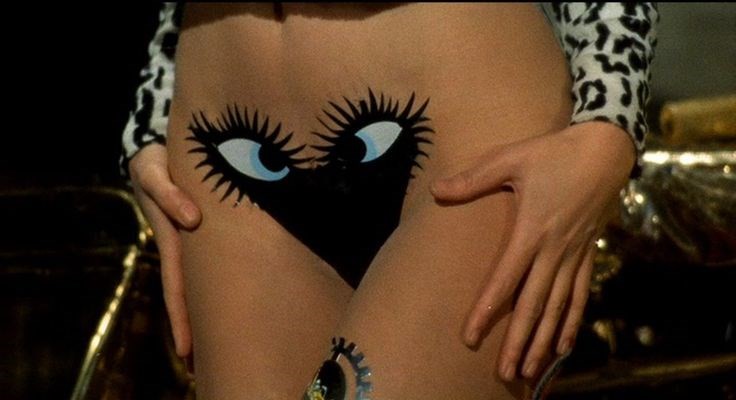As the thrilling Italian film genre enjoys a season at the Barbican, AnOther unravels the unexpected feminist threads in Giallo's cult cinematic masterpieces, dispelling its misogynistic myths
“It’s lurid, lewd, sexy, dark, mysterious, dreamlike, full of red herrings … and it's sort of nonsensical,” explains independent film programmer Josh Saco, when tasked with describing the bizarre world of Giallo, Italian cinema’s heavily stylised murder mystery genre. “Figuring out who did it just doesn’t matter, you’re there for the ride!” Murder, sex and high fashion take centre stage in these Agatha Christie-inspired psycho-thrillers, but amongst the fumbling plots and deceptive superficiality are leading women with complex motives and multidimensional characters.
She’s So Giallo – Women of 1970s Italian Thrillers, an upcoming film season at the Barbican curated by Saco’s Cigarette Burns, boasts a line-up of four titillating films that subvert patriarchal power dynamics. Whether it’s the female masochist manipulator in The Frightened Woman (1969) or the nuanced explorations of sex and freedom in All the Colours of the Dark (1972), these Giallos strike an effortless balance between substance and style – but so far they’ve been under-screened, and their heroines underappreciated. Below, Saco considers the unexpected feminist narratives in Giallo’s finest works, dispelling myths that assume the genre to be riddled with shameless misogyny.

On the fearless women and feminist potential of Giallo...
“The immediate assumption is that these Giallo’s are misogynistic… but they’re not. The killers are as often women as they are men, and they are driven by a whole load of different things. In The Strange Vice of Mrs. Wardh (1971), Julie Wardh’s partner and her new lover are conspiring together to kill her and in the end they think they’ve succeeded but in reality she kills them, she double bluffs back. [These] films don’t cling to the formulas of straight misogyny – it's not women running in fear, it's women killing men, women killing women. Men often seem like useless human beings…they’re idiots, they’re making mistakes.”
“In The Frightened Woman (1969), Maria, played by Dagmar Lassander, is pulled in by this woman-hating man who hires prostitutes to torture. However, she eventually turns the tables on him and without question takes over his masculinity. Equally, Florinda Bolkan, who plays Carol Hammond in A Lizard in a Woman’s Skin (1971) is a strong, feminist woman who you just look at and think…'nobody’s going to mess with you!' There are certainly films that are problematic – you can read them a whole bunch of different ways – but I think overall they’re a lot less straightforwardly misogynistic.”

On the surprisingly leftist mentality of Giallo directors…
“[These films] were made on the back of political turmoil in 1960s – a lot of the directors were coming out of a leftist identity. Dario Argento, a very cold director, directs films with hardly any emotion in it and he takes great pleasure in putting women’s heads through panes of glass! It is his trademark thing and I think he can be a problematic director. But if you look at people like Serio Martino (The Mountain of the Cannibal God, 1978) and Mario Bavo (Bay of Blood, 1971) – who effectively realised the genre – they were really leftist thinkers; they were coming from a more liberal point of view, casting the woman as heroines.”
On what contemporary thrillers can learn from Giallo’s subversive approach…
“I think now we are in a very interesting place with cinema and within filmmaking where women are demanding equal representation and equal recognition. There’s a great small independent scene that’s happening but sometimes they tend to go for the quick bang. It Follows was particularly fantastic with its female protagonist, but flare seems to be missing from a lot of them. It’s a lot more simplistic, less fun, less adventurous and a lot less boundary breaking…perhaps it's difficult to break the boundaries and find the boundaries to break now. It’s interesting to look back at these Italian cult films from 40/50 years ago and realise that they were already trying to be subversive.”

She’s So Giallo – Women of 1970s Italian Thrillers will screen The Frightened Woman (1969), One on Top of the Other (1969), Four Flies on Grey Velvet (1971) and All the Colours of the Dark (1972) – from June 7 until June 28, 2016 at the Barbican
